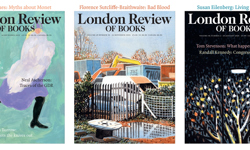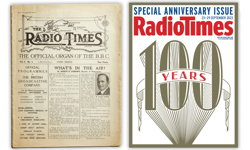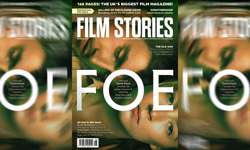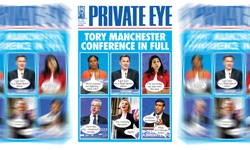Travelling companions
One of the lessons you could draw from the recent ABC figures is that while the middle market, which was once where all the action was, is struggling, the top and the bottom remain surprisingly strong. All those go-getting teens and twenties, who used to move the weathervane of fashion by the magazines they chose to buy or not, may be absent from the market but they're more than made up for by traditionalists who will take a lot of persuading to change their habits.
TV listings titles seem to plough on, regardless of the fact that EPGs should have rendered them redundant long ago. The People's Friend is still doing OK. There are clearly some people who don't want to know about Cheryl Cole's bottom.
The other area that seems to sail on, apparently against the prevailing wind, is that comparatively rarefied sector marked out by the current affairs and opinion magazines, magazines which were traditionally aimed at the Business Traveller.
I recently returned from a trip to the Shetland Islands where I’d taken part in a literary festival. This seemed an ideal opportunity to take the temperature of this curious mix of the ancient, such as The Spectator, and the modern, such as Prospect, from the polished and cosmopolitan flank, as represented by The New Yorker, to the parochial and grouchy end, values which I'm sure The Oldie would have no problem embracing, via the nervously "progressive" such as The New Statesman and the subtly conservative such as The Week.
These titles lend themselves easily to a journey for a number of reasons: unlike, say, Nuts or Marie Claire, your fellow passengers don't give you odd looks for reading them, and they're also the kind of thing you find at travel points. They're the kind of magazines that everybody reads occasionally, often on a journey. Having said that, I almost turned on my heel at WH Smith at Terminal Five at Heathrow when the unmanned checkout demanded I swipe my boarding card before it would sell me a copy of Private Eye. This is the kind of minor irritation that provides people with another reason not to shop, which nobody needs, least of all WH Smith.
A tangent here. Thrilled with the news that Saga had listed me as one of the best bloggers over the age of fifty, my wife tried to buy a copy at our local WH Smith and was told it came in on Tuesday. At Heathrow, they hadn't heard of it at all. You would have thought that the competition from online retail would have had the result of making the traditional retailers better at their jobs. This hasn't been the case in the music or book businesses and it doesn't appear to be happening in the news and magazine business either.
On the first leg of the journey, from Heathrow to Glasgow, I read Private Eye. While regulars like Pseuds Corner, Lookalikes and Desperate Marketing plough on, you do wonder if the democratisation of disrespect represented by Twitter, which offers unlimited opportunities for every wiseacre with an account to post a link and a funny comment, has robbed the magazine of some of the singularity of its bite. For years, people have been saying that it's the original reporting, far away from the funnies, that the magazine should shout more about. Maybe it's finally true. Certainly I read an intriguing little story here pointing out that the Metropolitan Police spent almost £250,000 last year on the rights to allow officers to listen to music radio while at work.
The hazards of weekly reporting
While waiting at Glasgow for the prop plane which took us to Sumburgh in the Shetlands, I inspected The Economist and was reminded that the words ‘as we went to press’ could be written on the headstone of every weekly magazine editor. "Hit him hard" exhorted the cover over a picture of Assad of Syria. The same day, Cameron was forced to delegate hitting duties to the Americans. By the time I was enjoying fish and chips at the Happy Haddock in Lerwick, a unique cross between a sleepy island town and gold rush San Francisco, even Obama appeared to be thinking again.
It's risky enough having opinions about world affairs and it's impossible to know whether they will prove to be the right ones. The New Statesman's problem in this area merely reflects Labour's problem. For them, downbeat doesn't feel right. Do I really want to read a story about how the civil rights movement lost its way pegged to the anniversary of King's speech in Washington? On the other hand, and by now we're in the super smart bar at Mareel, Lerwick's brand-new, purpose built Arts centre, The Spectator can always make negativity work for it, despite the fact that its party is at least notionally in power. Thus their cover, "the strange death of the middle class", is oddly comforting. For a Spectator reader, there's a kind of kudos about being the first to hear the bad news. Prospect sits somewhere in the middle, providing timely and balanced analysis of what China's slowing economy will mean for the rest of us and what we can learn from our intervention in Afghanistan. I fear it has one big problem, which is that it’s a bit boring.
Both The New Yorker and the nearest thing in the UK to it, The London Review Of Books, embrace the importance of surprise. This means that an ideal issue should be a combination of what you're expecting and what you're not. In the first slot for The New Yorker might be Malcolm Gladwell on the genes of top athletes. In the second might be a close examination of the TV acting technique of Claire Danes. Reading the LRB, you wouldn't be surprised to find an exhaustive examination of the letters of Ted Hughes but you might not realise that they devote the same amount of space to Ian Penman writing about mod. It's this flatness of the edit that is oddly appealing.
A day later, I sat outside the most northerly post office in the UK on the island of Unst as the pensioners turned up to collect. The Oldie has a clear position - if it happened in the past, when things were obviously better, they're interested. I just wish it went the extra mile on some of its stories. I'm not sure that "I knew Kenny Everett" or "I worked for Michael Winner" are quite enough to carry a page or even more. But I suppose it's one of those magazines where the position is more important than the execution. Buying a magazine called The Oldie, which now sells twice what the NME sells, is a statement of identification that most titles would be grateful for.
On his return, your business traveller strapped himself tightly into his seat on the small prop plane that was sitting on the tarmac at Sumburgh, being buffeted by terrifying cross-winds. As the plane sawed its way down the runway and into the thick cloud and rain above, I held The New Yorker in my hands but I was reading the same sentence again and again, as was everyone on the flight. I don't understand flight, which doesn't help with my anxiety. Similarly, I've no idea what acts of accountancy, charity or indulgent proprietors manage to keep some of the more marginal of these magazines above the clouds. However, I'm very pleased they do.












